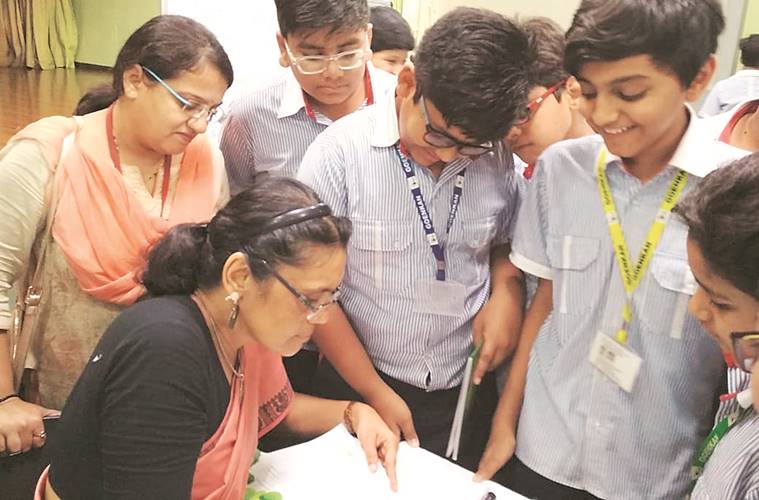
In author Nabanita Deshmukh’s latest book The Toothless Cobra and Other Stories (Rs 150, TERI Press), we learn about porcupines, honeybees, mynahs and snakes. If in Mithi the Moth, the insect loves flying around the lights in Babul’s room, who screams every time he sees Mithi flitting by, in another story, The Rainbird, Kumi, an adivasi girl, is on a lookout for the chataka bird or the Jacobin cuckoo to learn about the monsoons.
“Children should realise that we are not the only important species existing on this planet. We share our space with insects, birds, reptiles, amphibians and mammals and are dependent on one another for survival. To know how creatures live in the wild and why they are important, teaches children how to protect, love and nurture wildlife,” says the Puducherry-based author, who has written over 800 stories for children’s magazines. Her first book was The Disappearing Beach and Other Nature Stories (2017).
In Delhi recently, she visited schools to narrate these stories and discuss environmental issues and climate change with students. “Today’s children are well informed about environmental issues and climate change thanks to the internet and media, but I strongly feel they need to get more involved in the ‘real environment’ and connect with the world outside in a more dynamic manner,” says the author, who teaches geography at an alternate education school in Puducherry, and works with teachers from other states on “how to get stories into the classroom to make learning interactive and fun”.
The author notes that she began writing stories on environmental issues such as garbage segregation, importance of recycling and river pollution, to make her classes more interesting. “I feel children have a sense of wonder and curiosity about the environment that we adults lack or take for granted,” she says, adding that children could be given hands-on activities such as cleaning the beaches, the school lawn and trying out composting and recycling at home, to generate environmental awareness in a concrete manner.
On the competency of school textbooks dealing with such issues, she feels that there is an improvement. “Unfortunately, in many textbooks, the language is heavy and the lessons are too long,” she says. In her next book, Deshmukh plans to weave a story about an environmental disaster that took place in South India a few years ago and how the people of that small town rose in revolt and made the guilty pay for their negligence.